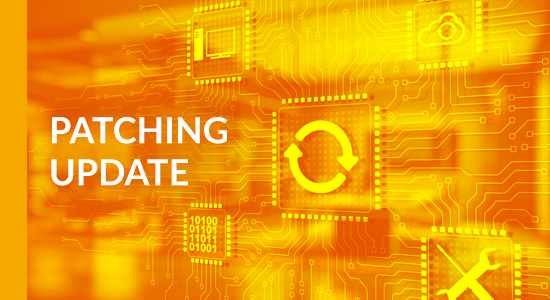Endpoint Protection: Why It's Essential for Modern Cybersecurity

It’s no secret that cyber threats are evolving and increasing in frequency and sophistication, making securing the endpoints of your infrastructure an imperative. The rise in volume and diversification of connected devices has considerably increased the vulnerability of IT environments and critical data, such as customer and financial information. Due to these heightened risks, adopting robust endpoint protection is no longer nice to have but rather an essential part of one’s security posture.
Why Endpoint Protection Matters
Endpoint protection is much more than traditional antivirus software; it’s the frontline defense of your network against cyber threats. As threats grow in complexity and craftiness, conventional security measures have proven outdated and oftentimes ineffective.
Endpoints, including computers, laptops, mobile devices, and other network-connected hardware, are frequently a network’s most vulnerable entry points. As such, they are prime targets for attackers seeking the easiest route into a digital environment.
Modern endpoint protection strategies involve significantly more than simply reacting to attacks, such as malware. They include security measures that comprise advanced algorithms and threat intelligence. This more sophisticated level of defense allows for detecting, preventing, and responding to threats in real time.
Endpoint Protection as Part of a Comprehensive Security Strategy
As remote and hybrid workforces gradually become the norm, the increasing array of connected devices is quickly expanding businesses’ attack surface. Even a single endpoint breach can have devastating effects, leading to financial losses and damage to organizational reputation. Reinforcing endpoints is essential to business continuity and resilience, ensuring operations proceed without disruption, even in the event of an attack.
Sufficient protection encompasses prevention, detection, swift response, and robust recovery. This comprehensive strategy ensures security incidents are managed effectively and that the impact of breaches is minimized, thus sustaining business operations and preserving the trust of stakeholders.
Furthermore, regulatory compliance mandates strict data protection standards in many sectors. Endpoint protection helps organizations meet these requirements, safeguarding sensitive data as it travels across devices. Businesses can avoid legal and financial repercussions associated with non-compliance by ensuring secure access and robust data protection measures.
Key Aspects of Endpoint Security
Effective endpoint protection involves a multifaceted approach—which extends beyond mere defense to encompass proactive management and compliance adherence— to guard against incoming threats and mitigate potential vulnerabilities. Organizations should prioritize the following vital aspects of endpoint protection:
Comprehensive Security Posture
- Holistic Integration: Endpoint protection should seamlessly integrate into your overall security strategy. This integration enhances defenses against various threats, including malware, ransomware, and other malicious activities. A well-rounded security posture detects threats and actively prevents them.
- Continuous Security Updates: Keeping protection systems up-to-date is vital. Regular updates ensure security measures are equipped to handle the latest threats, thus maintaining the integrity and security of organizational data.
Advanced Threat Detection
- Leveraging AI and ML: Modern solutions utilize artificial intelligence (AI) and machine learning (ML) to anticipate, identify, and neutralize threats in real time. This technology adapts to emerging threats, ensuring robust defense capabilities.
- Behavioral Analysis: Behavioral analysis features monitor device behavior for unusual activity, which could indicate a breach. This capability allows for quicker isolation and mitigation of potential threats, reducing potential impacts.
Policy Management and Compliance
- Robust Policy Development: Developing and rigorously enforcing comprehensive security policies are fundamental for the integrity of your infrastructure. These policies set the standard for security behavior and incident response.
- Regulatory Compliance: Utilizing tools such as Security Information and Event Management (SIEM) systems not only aids in achieving compliance with various regulatory standards but also in protecting sensitive information. This accountability is essential for maintaining organizational credibility and trust.
Enhancing Endpoint Protection is Just the Start with the Right Security Partner
Endpoint security is a cornerstone of robust cybersecurity. It plays a crucial role in a resilient and proactive security posture, helping organizations defend against current threats and prepare for future challenges. Working with a knowledgeable partner enables organizations to stay ahead of vulnerabilities and effectively protect their data.
Ready to enhance your security strategy? OneNeck’s experienced security team will deliver the tools and expertise to safeguard your data.
Contact us today to find out how we can help you fortify your endpoints.
Additional Resources:



